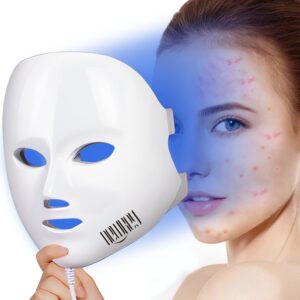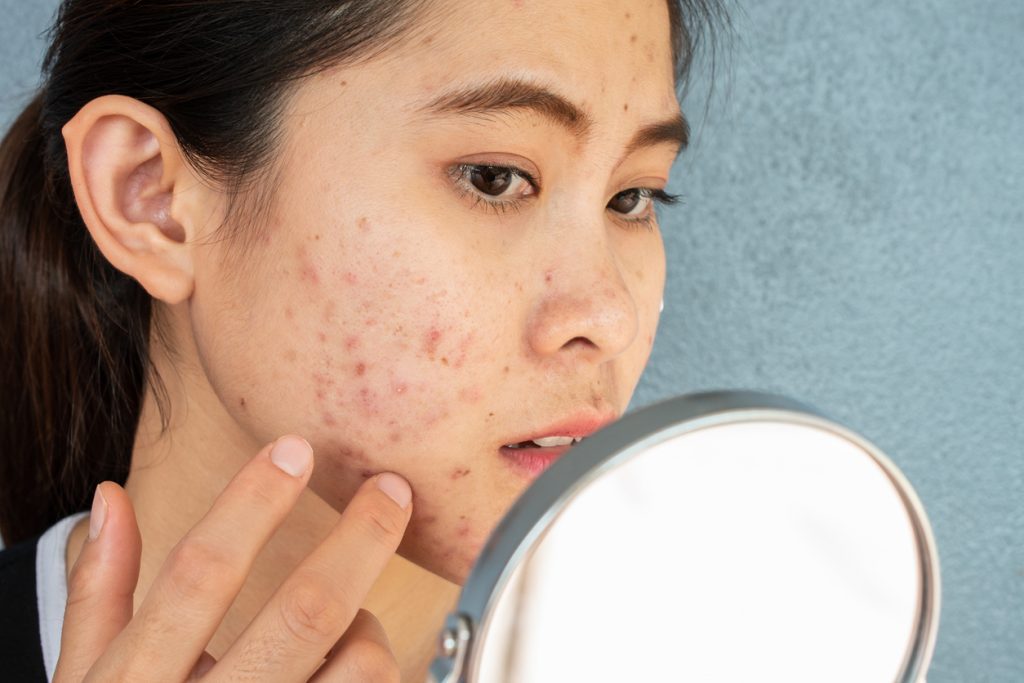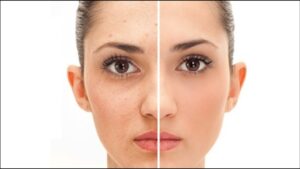Acne—just the word—sends shivers down the spines of teenagers and adults alike. These pesky pimples don’t just erupt on your face; they erupt into your confidence, social life, and sometimes even your mental well-being. But before you despair, let’s break down the science behind acne and explore ways to tackle it.
So, why do we get these unwelcome guests?
The blame game starts with four key culprits:
Excess oil: Your sebaceous glands produce sebum, a natural oil that moisturizes your skin. But sometimes, these glands go into overdrive, clogging pores and creating a breeding ground for bacteria.
Dead skin cells: Your skin constantly sheds dead cells, which usually flake off unnoticed. But when they stick around, they mix with excess oil, and bam! Blackheads and whiteheads form.
Bacteria: A bacteria called P. acnes thrives in clogged pores, leading to inflammation and those painful red bumps we call pimples.
Now, let’s talk solutions!
The good news is we have an arsenal of weapons against acne. The best approach depends on the severity and type of acne you have.
For mild acne:
Over-the-counter (OTC) products: Benzoyl peroxide and salicylic acid are your first line of defense. They unclog pores, reduce inflammation, and help prevent new breakouts.
Gentle skincare: Wash your face twice daily with a mild, oil-free cleanser and lukewarm water. Avoid harsh scrubs and products with alcohol, which can irritate your skin.
Hydration: Don’t skip moisturizer! Choose an oil-free, non-comedogenic moisturizer to hydrate your skin without clogging pores.
For moderate to severe acne:
Prescription medications: Your dermatologist may recommend topical retinoids, antibiotics, or hormonal therapy, depending on your specific needs. Retinoids help regulate oil production and cell turnover, while antibiotics target the bacteria. Hormonal therapy can be helpful for women with acne linked to hormonal fluctuations.
Light therapy: Blue light therapy has shown promise in killing acne-causing bacteria and reducing inflammation.

Beyond medication:
Lifestyle changes: Manage stress, sleep well, and eat healthy. These factors may not directly attack acne, but can indirectly improve your skin’s health and overall well-being.
Don’t pick! Picking at pimples can cause scars and increase inflammation. Please resist the urge, and let your treatments work their magic.
Remember:
Consistency is key. Acne treatments take time, so be patient and stick with your routine.
Find what works for you. Every skin is different, so experiment with different products and treatment approaches until you find a combination that controls your acne.
Seek professional help. Be bold and consult a dermatologist if OTC treatments aren’t effective or your acne is causing significant distress.
Dealing with acne can be frustrating, but it’s important to remember that you’re not alone. You can reclaim your clear, confident skin with the right approach and patience.

